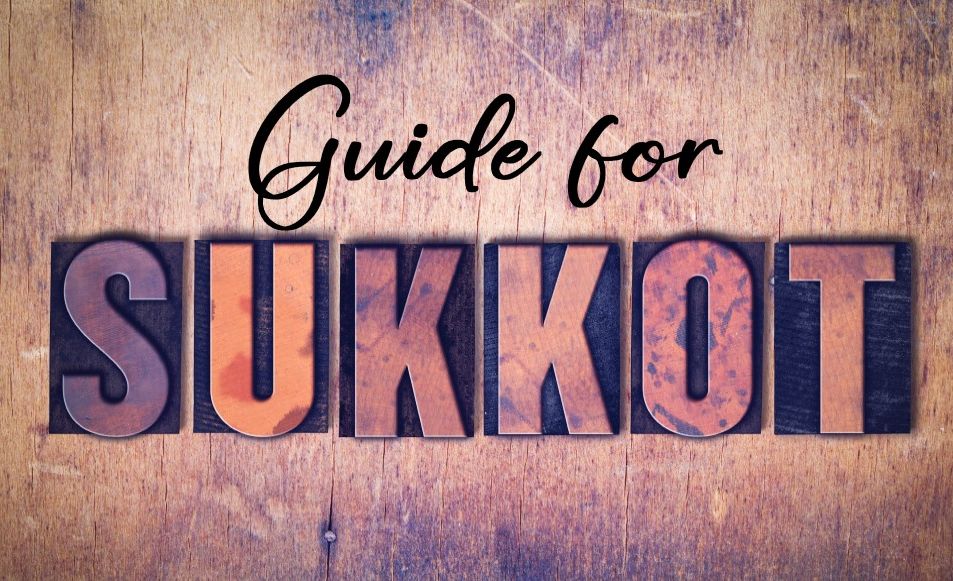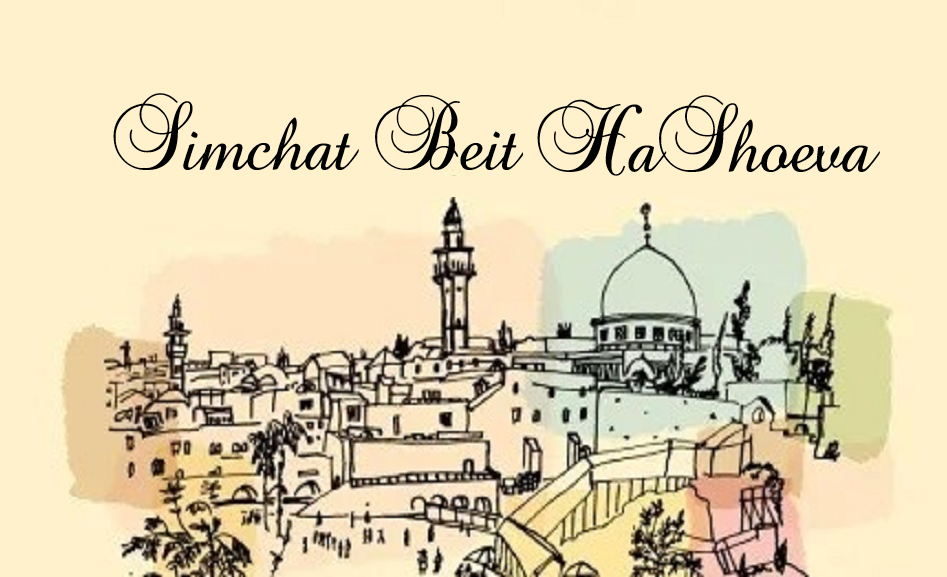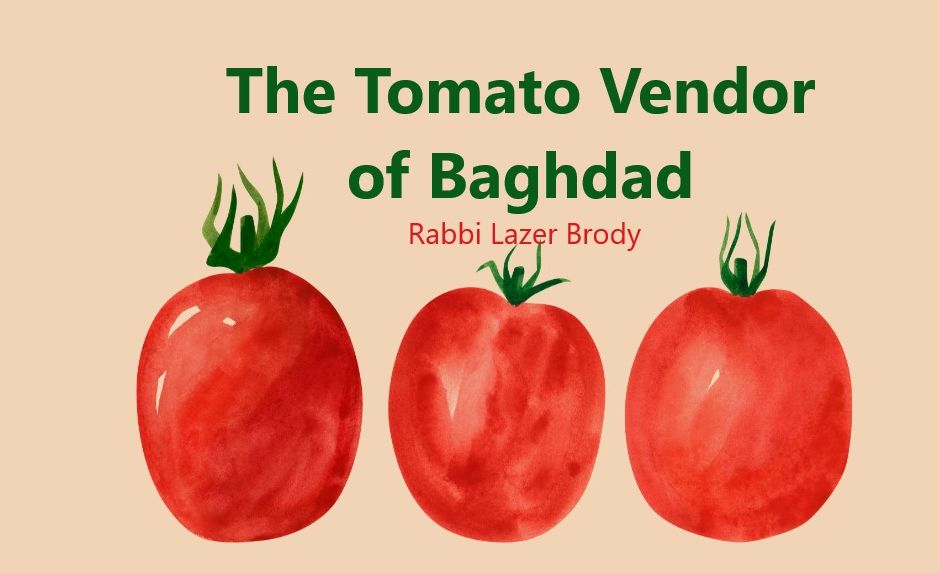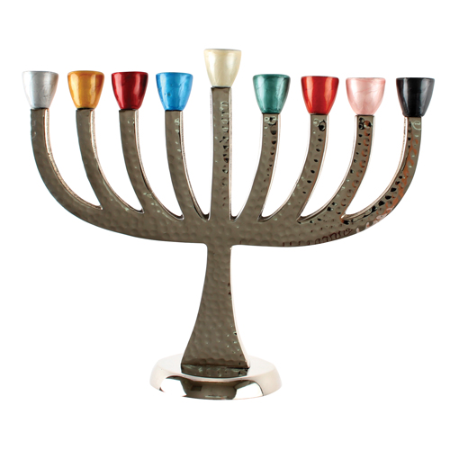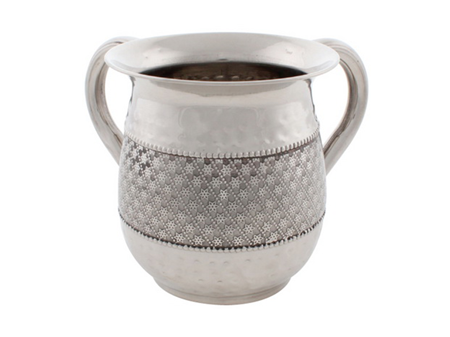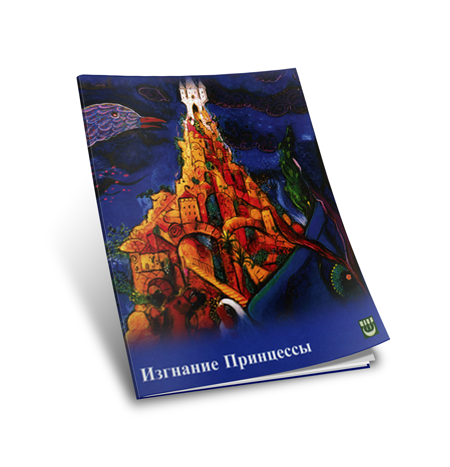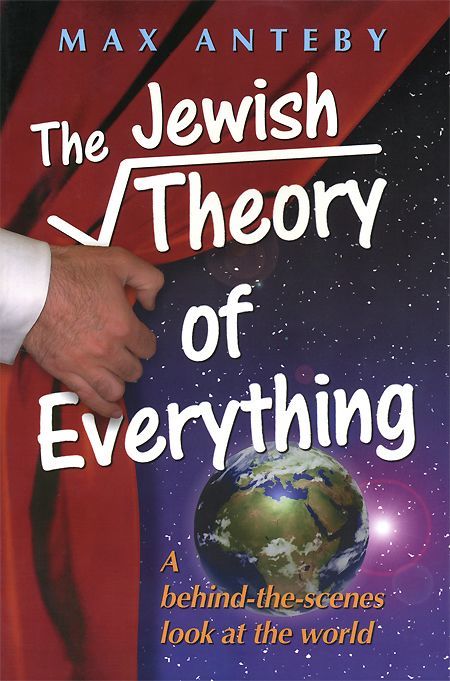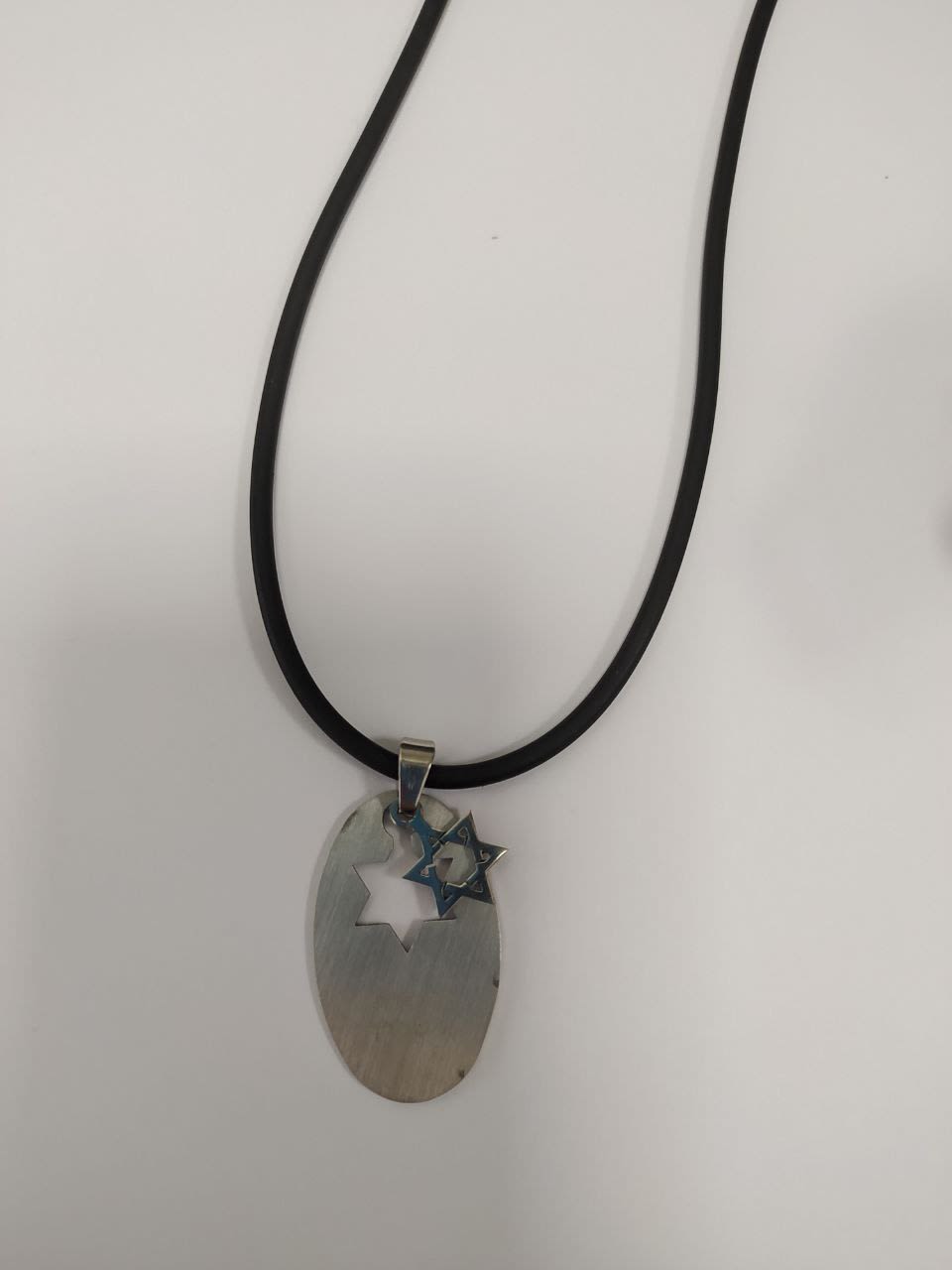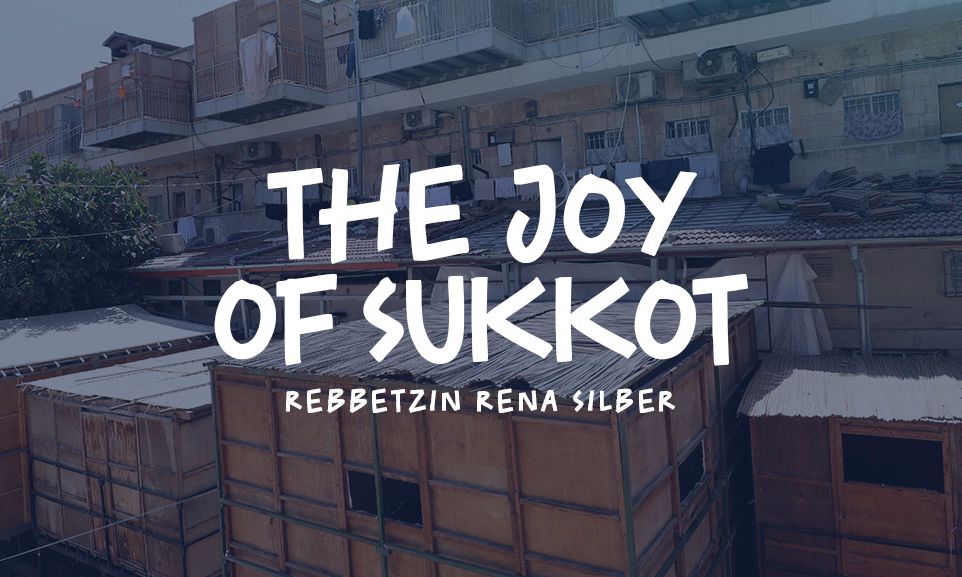
The Joy of Sukkot
…each night of the seven nights of Sukkot expresses Hashem’s love in a different way...

The Torah teaches us that each Yom Tov has its specific energy and focus. Pesach is related to internal freedom and release from the bonds that limit our connection to Hashem. Shavuot renews within each Jew the tools to connect to Hashem in His chosen vessel – the Torah, and Sukkot brings us to rejoice in Hashem’s close and loving embrace.
The Torah commands us to rejoice in our Holy Days as it states, “V’Samachta B’Chagecha”, “You Shall Rejoice in Your Holy Days.” Halachically, this means that we are to invest time and effort to beautify the holiday with good food and new clothing. Simchat Yom Tov also means we have to prepare some tidbits for the soul’s enjoyment, such as opening our homes to guests and meditating on the unique mitzvot of each of each Yom Tov.
Sukkot is a time of special rejoicing. The Torah mentions the word “simcha” – “joy” – three times when referring to how we celebrate Sukkot. One of the ways a Jew becomes open to simcha is through song and dance, which is how we celebrate Simchat Torah, the culmination of Sukkot.
The simplest and most natural simchat hachayim, joy in life, is to be found in children. Our young ones, generally unaffected by the spiritual pollution of the outside world, are tuned into the natural joy of just living. They smile unaffectedly, laugh with passion and dance and run around without concern for how it looks to others. Children are pure and holy vessels, waiting to be filled with whatever attitudes and ideas their parents choose.
Most children love to be held by their parents. If it would be up to them, most babies would like to be held all the time. The arms of a loving parent are the most comfortable and reassuring place for a child to be.
As children grow, they venture out into the world and only need a ‘quick fix’ of parental love and reassurance every so often. The hugs and looks of pride that a child frequently receives from his parents is the spiritual and psychological nourishment that empowers and activates the child, and is no less important than the food they eat.
The Sukka is Hashem’s hug to each and every one of us. Remember this and be conscious of His Hug when you enter your Sukka this year. Feel His divine and eternal love; His unconditional love for us, who He has called His Children.
Halacha is a reflection of reality. Halacha reveals to us whiffs of the underlying intelligence through which Hashem created this universe. There is a halacha that the Sukka must be made with a minimum of two complete walls, a section of a third wall, and crowned with S’chach. Of course four complete walls are preferable.
A child loves to be scooped up into a parent’s two arms and totally embraced in this full body-surrounding hug. That’s compared to the four walls of the Sukkah. As the child grows older, an affectionate arm around the shoulder is also good. That’s compared to the halachically acceptable two and a half walls of the Sukkah.
The letter “samech” (ס) of the word “sukkah” has four sides, like a four walled sukka. The “Chaf” (כ) of the word “sukkah” has three sides, like the three walled sukkah. The “Hey” (ה) of the word sukka connotes Hashem and the Vav connotes you!
Sukkot is similar to Sefirat HaOmer in that each night of the seven nights of Sukkot expresses Hashem’s love in a different way. The first night and day corresponds to the sefira and energy of Chesed, the second night and day to Gevura etc. This is reflected in the traditional invitation to the Ushpizin, the holy guests, our forefathers, to whom we open our sukkah and hearts.
|
Day of Sukkot
|
Sefirat HaOmer
|
Trait
|
Guests in the Sukkah
|
|
Day 1
|
Chesed
|
Loving Kindness
|
Avraham Avinu (Our father Abraham)
|
|
Day 2
|
Gevurah
|
Strength
|
Yitzchak Avinu (Our father Isaac)
|
|
Day 3
|
Tiferet
|
Harmony
|
Yaakov Avinu (Our father Jacob)
|
|
Day 4
|
Netzach
|
Victory
|
Moshe Rabbeinu (Our teacher Moses)
|
|
Day 5
|
Hod
|
Splendor
|
Aharon HaKohen (Aaron the Kohen)
|
|
Day 6
|
Yesod
|
Foundation
|
Yosef Hatzaddik (Josef the Tzaddik)
|
|
Day 7
|
Malchut
|
Kingship
|
Dovid Hamelech (King David)
|
The final day of Sukkot is called Shmini Atzeret. In Israel, this is the day we celebrate Simchat Torah by dancing with the Torah scrolls all night and day. This final day, an additional holiday, represents the final Goel, the Mashiach, the ‘Ben Dovid’. May he come in a revealed way and gladden our hearts and souls. May Hashem rescue us all, His beloved children and may we all rejoice together in the rebuilt and activated Beit Hamikdash.
***
With permission from Rebbetzin Rena Silber.


